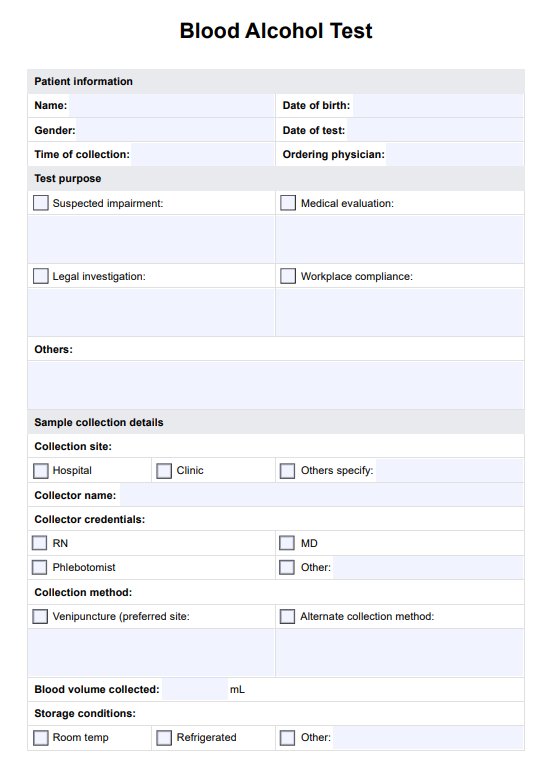A Blood Alcohol Test measures the amount of alcohol (also called ethanol or ethyl alcohol) in the blood. It shows if the person has been drinking alcoholic beverages like beer, wine, or liquor.

Blood Alcohol
Use this Blood Alcohol Test template to document BAC levels accurately and consistently in your healthcare practice. Streamline assessments with ease.
Blood Alcohol Template
Commonly asked questions
Alcohol is typically detectable in a blood test for up to 12 hours after consumption, depending on metabolism, body weight, and drinking levels. However, alcohol biomarkers like phosphatidylethanol (PEth) can indicate chronic alcohol use for up to several weeks.
For accurate blood alcohol content (BAC) testing, it is recommended that ndividuals should avoid drinking alcohol for at least 24 hours before the test. For tests assessing long-term alcohol use, such as PEth or liver function tests, abstaining for several weeks may be necessary.
EHR and practice management software
Get started for free
*No credit card required
Free
$0/usd
Unlimited clients
Telehealth
1GB of storage
Client portal text
Automated billing and online payments











